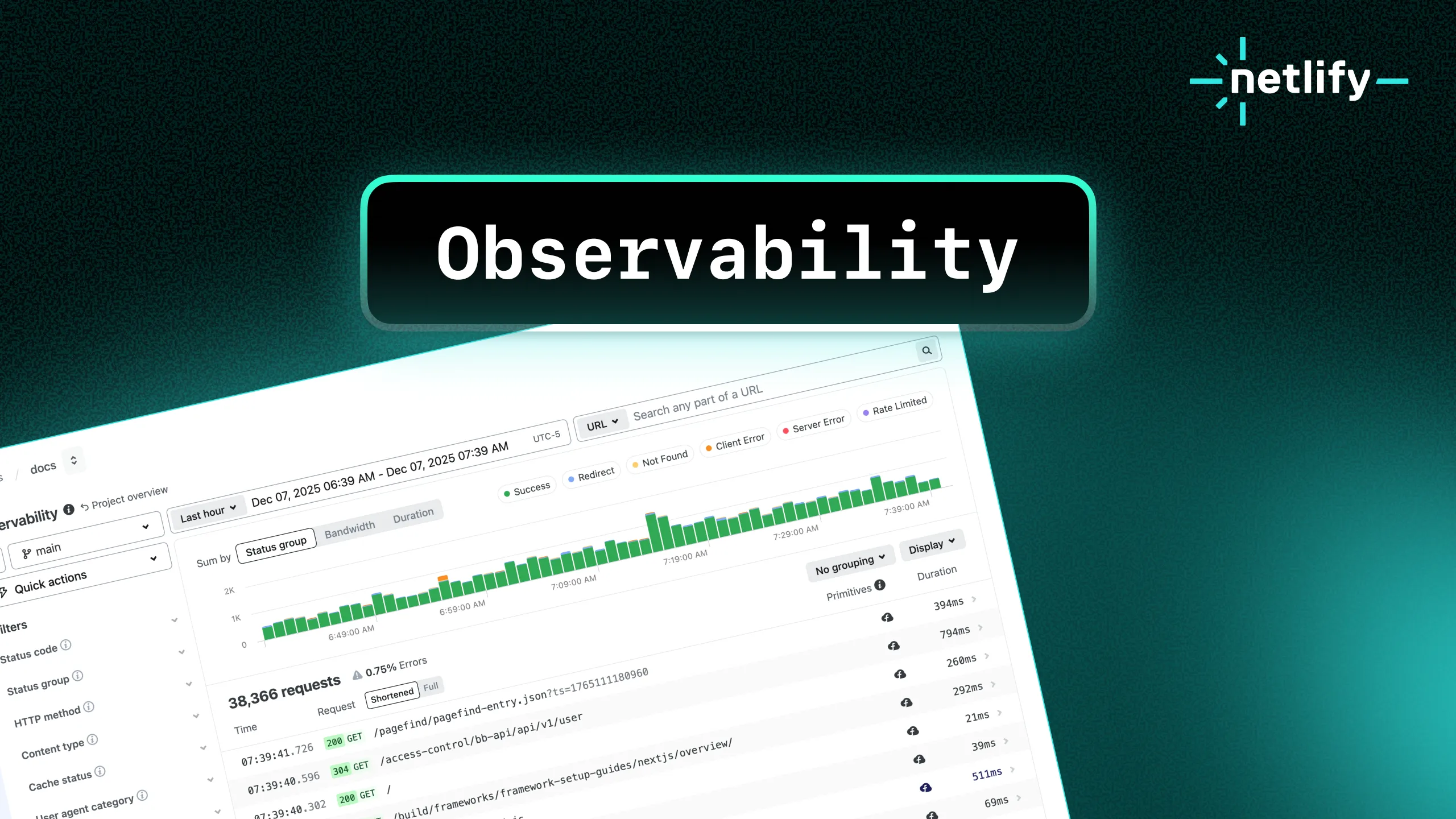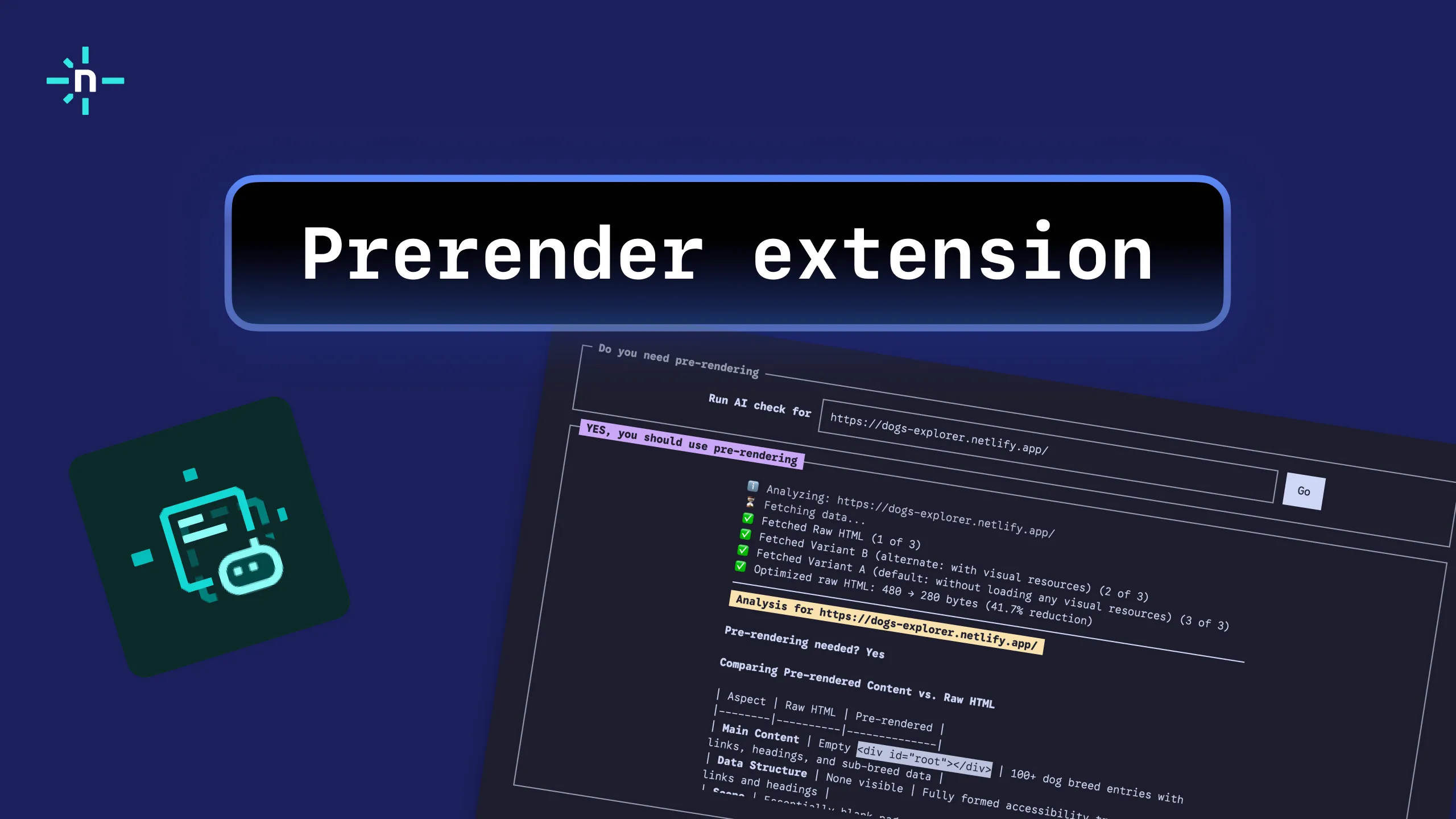Here at Netlify, we are always thinking about how we can streamline the DX (developer experience) for our wonderful community of devs.
- How can we streamline your life?
- What can we do to shave a few seconds off this process and that?
- Where are the points of friction in your dev flow & how do we eliminate them?
These are the questions that drive us. It’s why we do what we do.
So in the spirit of “STREAMLINE ALL THE THINGS” we are proud to introduce our new & improved CLI 🎉

Give it a spin!
To grab the new CLI, pop open your terminal and run:
npm install -g netlify-cli@nextAfter you’ve installed the CLI, you have access to a bunch of fancy new features.
Read the docs: https://cli.netlify.comSupport and bugs: https://github.com/netlify/cli/issues
Netlify command line tool
VERSION netlify-cli/2.0.0-beta.2 darwin-x64 node-v10.4.1
USAGE $ netlify [COMMAND]
COMMANDS deploy Create a new deploy from the contents of a folder init Configure continuous deployment for a new or existing site link Link a local repo or project folder to an existing site on Netlify login Login to your Netlify account logout Logout of your Netlify account open Open settings for the site linked to the current folder sites Handle various site operations status Print status information unlink Unlink a local folder from a Netlify site watch Watch for site deploy to finishFirst we will need to login to connect the CLI to your existing Netlify Account.
# login to your netlify accountnetlify login
After logging in, it’s time to link a local site and run some of these fancy new commands!
Side note: If you don’t have a site in Netlify yet, you will want to use the netlify init command to setup & configure your brand new site. Need a site/repo work with? Check out our website templates
Navigate to your local site repo and inside of it’s directory run:
# change directories into your sitecd ./your-site-directory
# Connect the folder with your live Netlify sitenetlify linkThen choose how’d you’d like to link the site.
- Automatically detect the local Git remote (recommended)
- Entering your site name
- Or entering in your site ID
After your site is linked, you can run different operations against it.
Lets try a deploy!
# run your local build scriptnpm run build
# Then deploy it to a draft URL!netlify deployOptionally you can pass the --open or -o flag to the deploy command to pop open your live URL after the deploy has finished.
# Open after deploynetlify deploy --open
Exploring commands
To see the available commands of the CLI run:
netlify helpTo dig deeper and find out more about specific commands run:
netlify [command] help
# See all current `netlify sites` sub commandsnetlify sites helpYou can also check the repository README for more usage details.
Our CLI journey
At Netlify, we’ve gone through a number of iterations of our CLI tool, going from a hand rolled ES5 Node.js-based CLI, to a Go CLI based on Netlify’s OpenAPI Specification.
We’re now going back to Node 🎉, but building with modern JavaScript using an API client derived from our open-api specification.
Under the covers, we are using the pluggable oclif CLI framework made by Heroku. Heroku’s legendary CLI went through an even longer technology journey and the team over there wrote a very interesting post about why Node.js and oclif were the best fit for them.
Rewriting a CLI is no small decision. A large majority of Netlify customers incorporate some kind of Node-derived workflow, using libraries and assets in their final builds and the torrent of developer tools available on the npm registry.
Bringing the Netlify CLI back into the npm module ecosystem will provide a familiar and convenient workflow that should be a good fit for our customers and was a big factor in our decision.
For all the Gophers out there, the dependency-free netlifyctl will continue to operate as it currently does. (And we still absolutely love and use Go at Netlify!)
In short, the Node CLI is getting this 2.0 makeover and the Go based CLI will likely be deprecated in the future.
Approachable contributions
Like a lot of tools we’ve made, the new Netlify CLI is completely open source.
Another design decision around the rewrite to was to maximize the accessibility of open source contributions. The codebase is written in uncompiled ES6 JavaScript targeting Node.js LTS and Stable, taking full advantage of async/await and modern syntax goodies.
We’ve tried to keep the codebase accessible and easy to contribute to. To start, find the command in question, and start reading through the code.
Pull requests are backed up by a plethora of CI services and tests to help you get your potential PRs landed. See something wrong? Open an issue! But also don’t be afraid to dig around.
# Clone down repogit clone https://github.com/netlify/cli.git# change directories into CLI foldercd cli# install the deps!npm install# Link the local files to the global 'netlify' commandnpm link# `netlify` is now running your local development copy! Dev away!netlifyGoing Forward
Once we gather feedback and work out the inevitable kinks of the fresh codebase, we have plans to expand into community-contributed plugins, development proxies, CLI-based logs for serverless functions and deploy logs, custom domain and site configuration, and a bunch of other exciting features.
Some future plans for the CLI
Pluggable CLI commands
The CLI is pluggable, meaning user land plugin contributions are possible and highly encouraged!
We plan on keeping the core CLI pretty lean and plugins will be a great way for users to extend functionality to their site builds, serverless functions & site settings.
Here’s some pseudo code of what plugins will likely shake out to look like.
netlify plugins:install google-analytics --uid UA-9282822-YKeep an eye on the repo for more details on this.
Improving the local development story
Tools like netlify-lambda have made it easy for Netlify Functions users to run serverless function code locally. Now it’s time to crank that up a notch!
Here are a couple of ideas we are kicking around:
- Local development proxy to emulate the Netlify redirects engine
- Streamlined serverless function build tools (packaging/deploying/logging)
- Fetching remote function & build logs via the CLI
- Managing your site domains via CLI
- Toggling on additional netlify features (like forms, identity, etc) via CLI commands
- Your feature requests
Better Logging
Tailing long logs in the UI can sometimes be challenging. Staying ‘in the zone’ in the CLI and watching logs pipe through Bringing in your site build logs right into the terminal you just git push’ed up your code just makes sense!
[Your Idea Here]
We have a lot planned for the future of the CLI and would love to hear your feedback and feature requests!
Open up a GitHub issue and let us know your thoughts!





